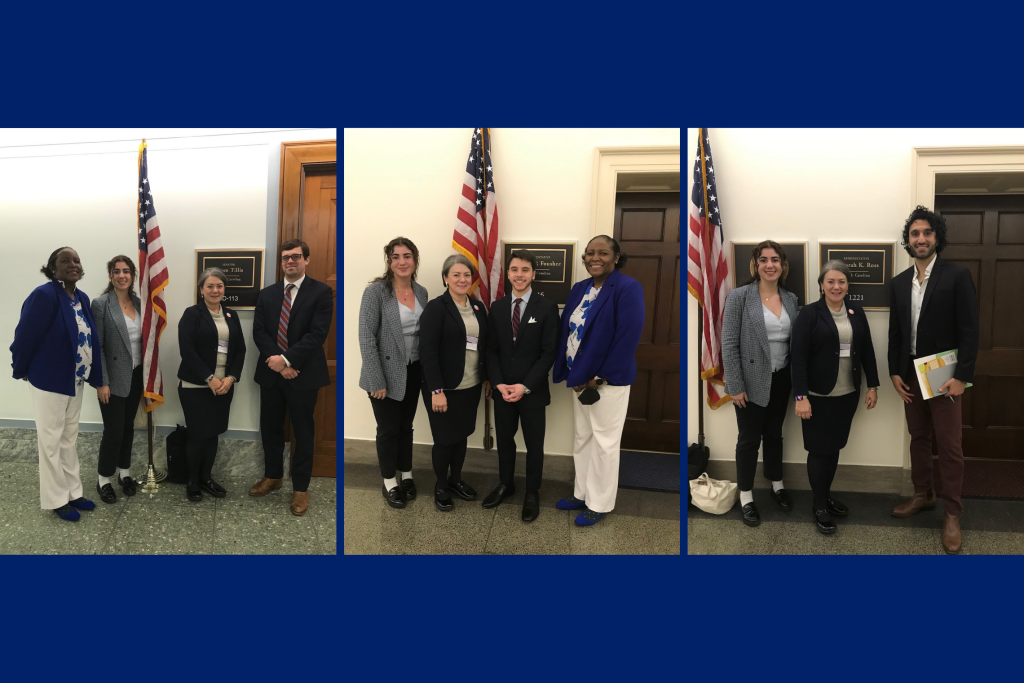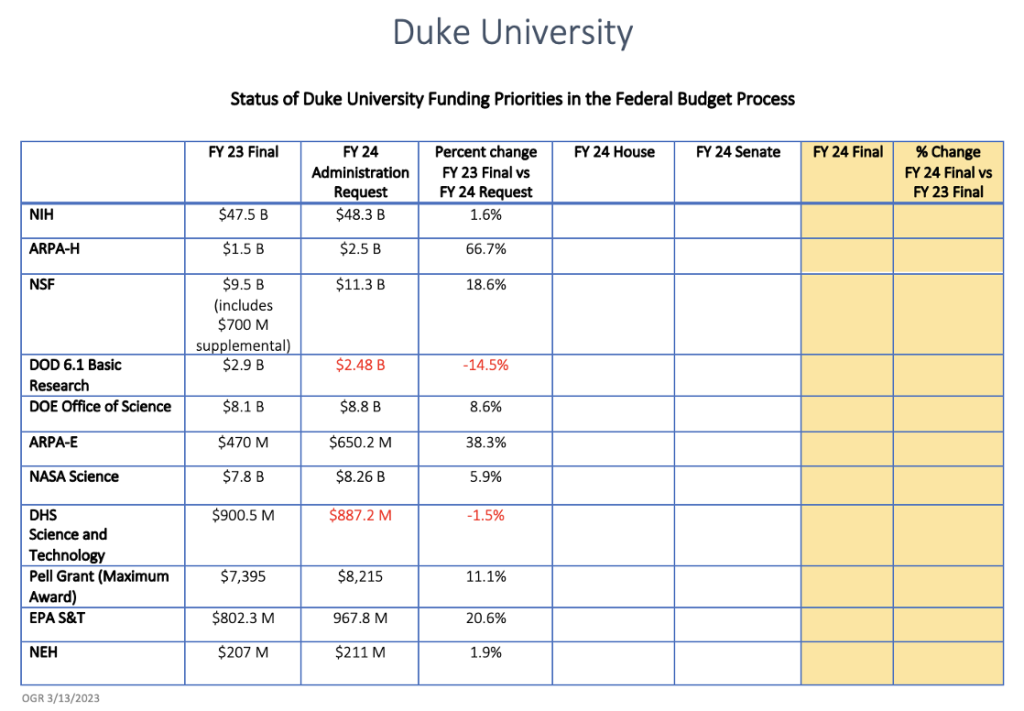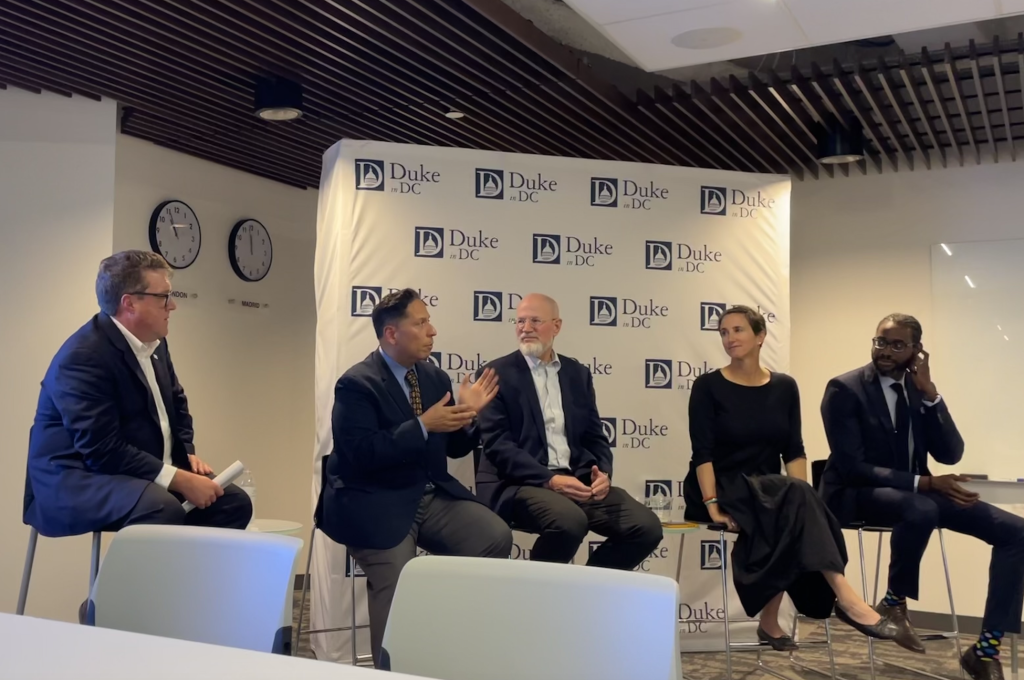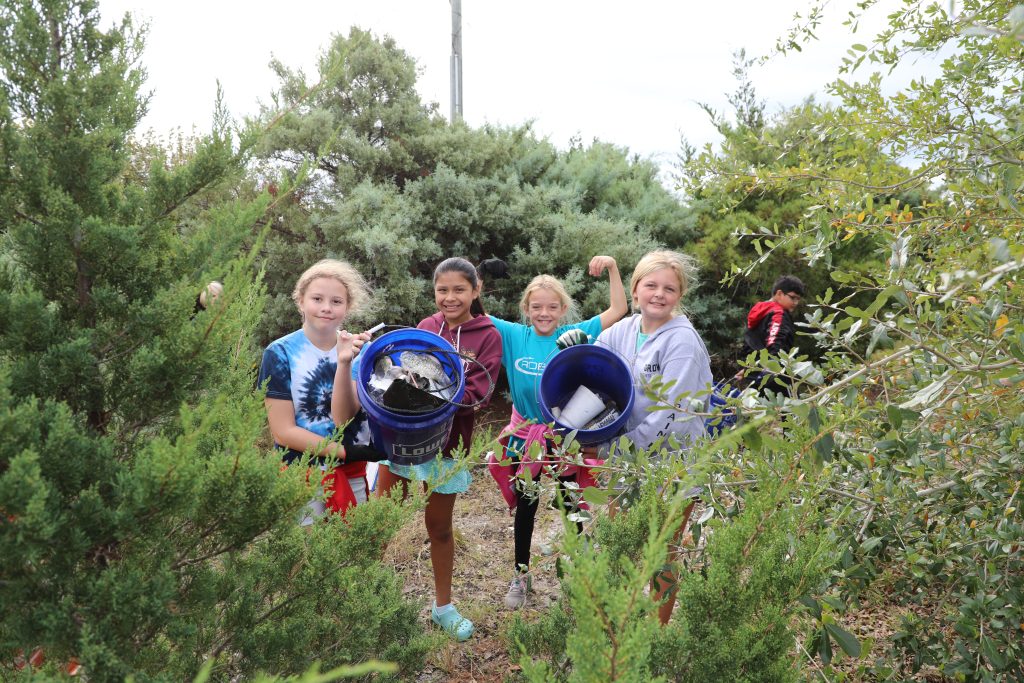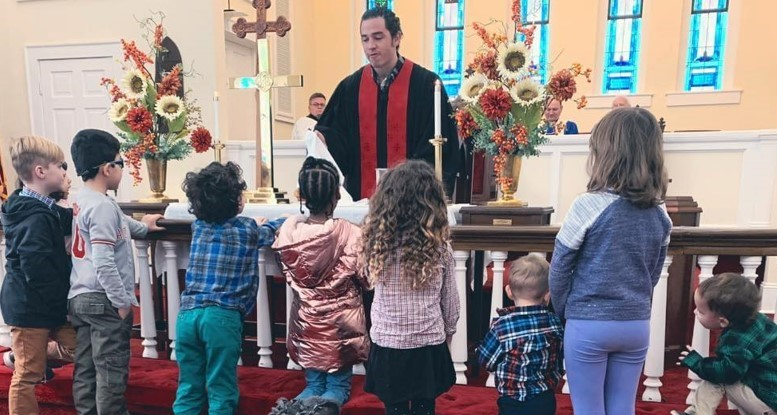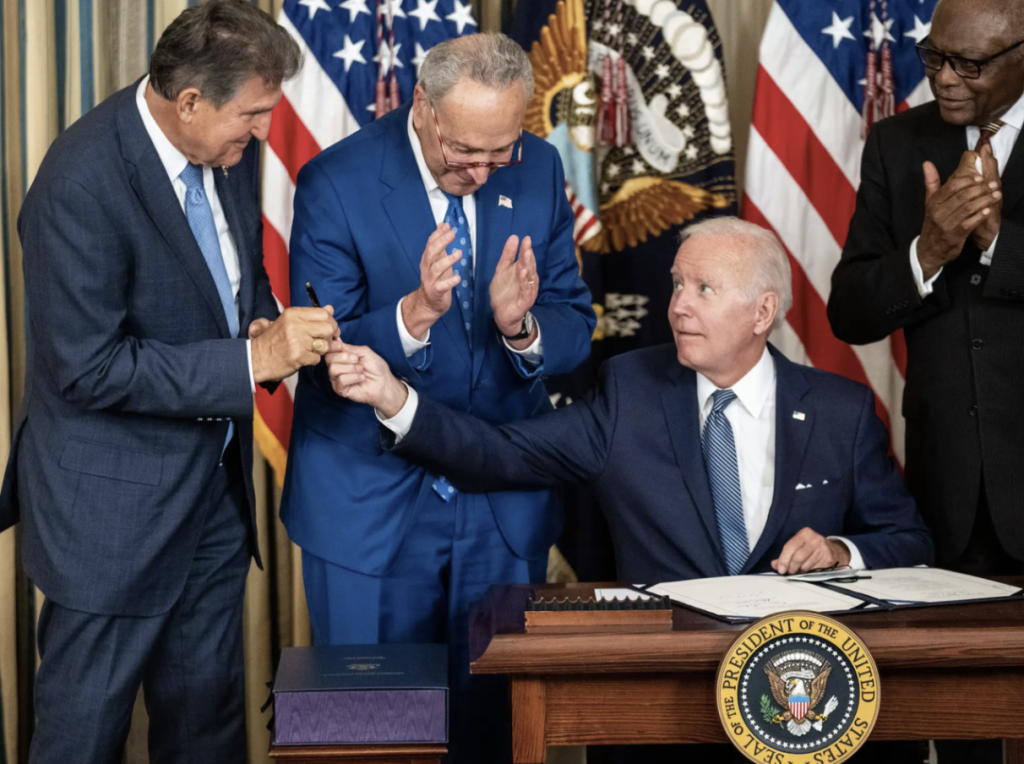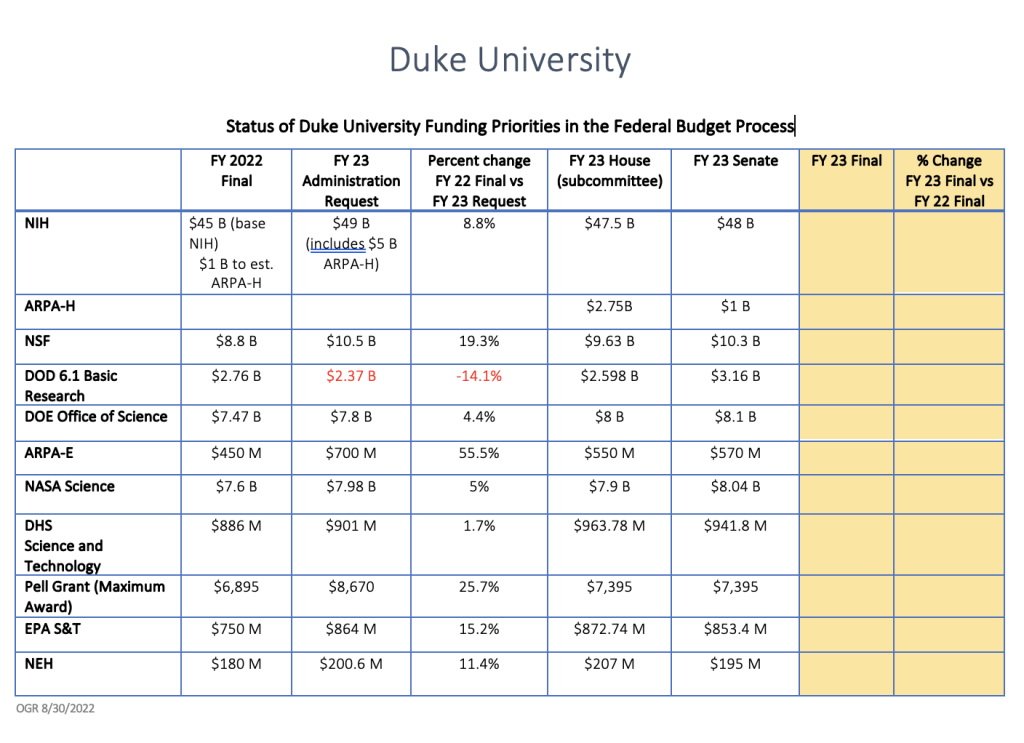Government Relations Intern Blog
Bella DiMeo ’25

This spring proved to be a busy season for Duke student advocacy in DC. Five different groups made their way to the nation’s capital to discuss different issues with North Carolina lawmakers and outside advocacy organizations. All the groups were able to work with Duke in DC and the Office of Government Relations (OGR) in planning and preparing to make their trips successful. My OGR internship allowed me to learn more about each of these treks as well as also embark on my own journey of student advocacy in the nation’s capital.
Each group that traveled to Washington, DC this semester emphasized that the advice and resources provided to them by the OGR and Duke in DC staff were essential in helping them prepare, along with the support from the university more broadly. Through the lessons learned from the leadership positions they hold on campus, public policy classes and hands-on research experience, the students could speak from a place of knowledge and successfully advocate for their respective causes, maximizing their advocacy trip experiences.
Define America, which is a group made up of undergraduate students advocating for “justice for immigrants, refugees, and asylum seekers in the United States of America,” met with staff from Vote Latina as well as several congressional offices to discuss their goals. In addition to their coursework and leadership positions which helped them prepare for the trip, Duke’s Define America treasurer Yadira Paz-Martinez explained, “We leaned on other Duke alumni and Duke students to prepare ourselves with a foundational understanding of current bills and policies advocating for immigration reform.”
Another group of students representing the Graduate and Professional Student Government External Advocacy Committee came prepared to discuss basic research funding, federal funding for graduate student financial aid, U.S. scientific literacy and the importance of access to genetic information in health care as well as protections for such genetic data with lawmakers on Capitol Hill, most notably in the office of Senator Thom Tillis (R-NC).
They learned through action that advocacy goes beyond support, “it is analysis, discussion and explanation” of an issue, explained Gabriel Kennedy, a first-year Ph.D. student in Genetics and Genomics, “The very actions we take as students directly translate into advocacy. Often, people underestimate how translational these soft skills can be.” Kamilah Kassam, a fifth-year Ph.D. Candidate in Chemistry added, “My time at Duke taught me… the nature of true advocacy: to amplify the voices of the marginalized, never to speak over them.” These ideas, fostered at Duke, inspired the group’s presentations in D.C. and the engaging conversations they took part in.
These students also had a dinner organized by Duke in DC with Duke Alum Robert Bonnie, Under Secretary for Farm Production and Conservation at USDA. Bonnie, a former Rubenstein Fellow and Executive in Residence at Duke, spoke with the students about the changes he has seen in advocacy and the value of their Duke education.
On another advocacy trip organized with the American Association for the Advancement of Science (AAAS), Duke student Balraj Singh reflected, “I had the pleasure of being involved in groundbreaking scientific research… Duke empowered me to put my best foot forward when asking for increased funding for the National Institutes of Health (NIH), National Institute of Standards and Technology (NIST) and various other governmental organizations that directly and indirectly fund research at Duke.” The bonds this group formed with Duke alumni working on Capitol Hill were also the highlight of the trip. Their shared connection helped them convey “the impact of federal funding on research and education, both at Duke and in the broader community,” according to Meredith Schmehl, a Ph.D. Candidate in Neurobiology at Duke’s Graduate School.
The Sanford School of Public Policy’s Latin American and Caribbean group had a different focus throughout their trip. Instead of engaging in direct advocacy with lawmakers, these students connected with outside advocacy organizations, sometimes hosting them at the Duke in DC office, to learn how they approach their work first-hand. Throughout their visit, the group stressed the importance of an open-minded approach to viewing their public policy issues. With support from Duke’s Center for International Development (DCID), the students were encouraged to engage in thorough research and planning before their meetings “to gain insight into their professional trajectories and areas of expertise,” explained Camila Herrera, MPP ‘24. This preparation enabled the group to converse more openly about their policy interests.
A rising junior majoring in Classics, I had the personal privilege to travel to D.C. and meet with staff from various congressional offices as a part of the National Humanities Alliance’s Humanities Advocacy Day, described in greater detail here. While I was the only student in my group of advocates, the resources and guidance I received from my internship managers in Duke’s Office of Government Relations helped me successfully contribute to the day’s advocacy meetings.




